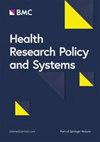冠状病毒病 2019(COVID-19)大流行的经历对疫苗接种态度的影响:波兰首选疫苗接种组织模式的社会、文化和政治决定因素
IF 3.6
2区 医学
Q1 HEALTH POLICY & SERVICES
引用次数: 0
摘要
文章描述了波兰人对疫苗接种的态度,涉及自愿接种与强制接种、疫苗接种的资助方式、疫苗接种的组织和实施方法、疫苗的认知和教育方面(如何获得疫苗知识)以及新疫苗的首选工作和研究模式等问题。考虑到这些问题,作者创建了四种理想的首选疫苗接种政策模式:(a) 市场模式;(b) 国家模式;(c) 疫苗犹豫不决模式;(d) 公民-社会模式。从这个角度可以更好地理解和了解反疫苗接种运动态度背后的各种动机,并注意到疫苗接种支持者之间的裂痕和分歧,以及他们对疫苗接种的资助和组织的态度。研究采用 CATI 方法,对波兰社会中具有代表性的 1000 名 18 岁及以上的人进行了随机配额抽样调查。研究考虑了年龄、性别、教育程度和居住地的大小。此外,在 "影响波兰人接种疫苗态度的社会人口因素 "部分,我们对影响波兰人接种疫苗态度的因素进行了卡方检验和回归分析。统计分析使用了 PASW Statistics 18(SPSS 的一个版本)软件。在显著性水平为 0.05% 的皮尔逊条件下,显示出显著的相关性。本文表明,对疫苗接种的态度蕴含在与社会秩序愿景有关的更广泛的划分和取向中:国家的作用、医疗保健的组织、疫苗接种和医疗服务的支付,以及社会知识生产和新疫苗工作的首选方式。受访者的政治倾向和年龄是影响疫苗接种行为的最重要变量。受访者的教育程度则不那么重要。大流行高峰期过去几年后,波兰社会中反疫苗接种态度的范围从20%(教条主义的反疫苗接种者)到30%(根据对疫苗接种的态度而出现疫苗接种犹豫)不等。本文章由计算机程序翻译,如有差异,请以英文原文为准。
The impact of coronavirus disease 2019 (COVID-19) pandemic experiences on attitudes towards vaccinations: on the social, cultural and political determinants of preferred vaccination organization models in Poland
The article describes attitudes towards vaccinations in Poland in relation to issues such as voluntary versus compulsory vaccinations, the method of financing vaccinations, the method of organizing and carrying out vaccinations, the cognitive and educational aspect of vaccines (how to obtain knowledge about vaccines) and the preferred model of work and research on new vaccines. Taking into account these issues, the authors have created four ideal models of preferred vaccination policies: (a) the market model; (b) the state model; (c) the vaccine hesitancy model; and (d) the civic–social model. This perspective makes it possible to better understand and learn about the various motives behind the attitudes of anti-vaccination movements, as well as to notice cracks and divisions among vaccination supporters and their attitudes towards the financing and organization of vaccinations. The study was carried out using the CATI method on a representative random-quota sample of Polish society of 1000 people aged 18 and over. The study took age, sex, education and the size of the place of residence into account. Additionally, in the Socio-demographic factors influencing attitudes towards vaccination practices in Poland section, we used the chi-squared test and regression analysis of factors influencing vaccination practices in Poland. PASW Statistics 18 (a version of SPSS) software was used for statistical analysis. Significant correlations were demonstrated at a significance level of 0.05% Pearson. This article has shown that attitudes towards vaccinations are embedded in broader divisions and orientations related to the vision of the social order: the role of the state, the organization of healthcare and payments for vaccinations and medical services, as well as preferred ways of knowledge production in society and work on new vaccines. The political sympathies and the age of the respondents were the most important variables influencing vaccination behaviour. The education of the respondents was less important. A few years after the peak of the pandemic, the scope of anti-vaccination attitudes in Polish society ranges from 20% of the population (dogmatic anti-vaxxers) to 30% (vaccine hesitancy occurring depending on attitudes towards vaccinations).
求助全文
通过发布文献求助,成功后即可免费获取论文全文。
去求助
来源期刊

Health Research Policy and Systems
HEALTH POLICY & SERVICES-
CiteScore
7.50
自引率
7.50%
发文量
124
审稿时长
27 weeks
期刊介绍:
Health Research Policy and Systems is an Open Access, peer-reviewed, online journal that aims to provide a platform for the global research community to share their views, findings, insights and successes. Health Research Policy and Systems considers manuscripts that investigate the role of evidence-based health policy and health research systems in ensuring the efficient utilization and application of knowledge to improve health and health equity, especially in developing countries. Research is the foundation for improvements in public health. The problem is that people involved in different areas of research, together with managers and administrators in charge of research entities, do not communicate sufficiently with each other.
 求助内容:
求助内容: 应助结果提醒方式:
应助结果提醒方式:


